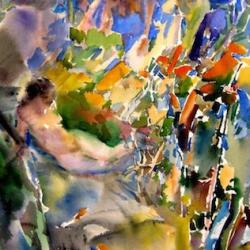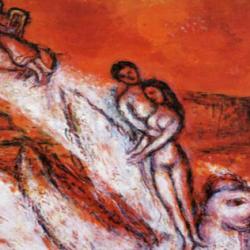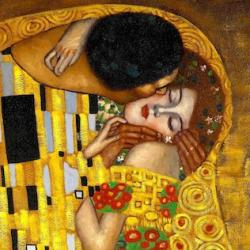Plowing is sometimes used as a sexual metaphor in Scripture (Judges 14:18), but, as Walsh points out, in the Song these metaphors are absent, and instead we have metaphors of vineyards, orchards, gardens. This is partly explained by the facts of Israel’s agri-economics: They were not, as Mesopotamia was, a predominantly grain-producing nation but produced a wider variety of crops. But then so did the Greeks, and yet Greeks resorted to plowing metaphors in their erotic poetry.
The difference, Walsh thinks, has something to do with the status of women in Israel.
The plow metaphor implies that the man is active in preparation and planting, while the woman remains passively receptive. By contrast, the bride takes a good deal more of the initiative in the Song. Her desires start the Song – “your lovings are better than wine” – and only later does the man reciprocate (4:10). Besides, the plowing metaphor is a purely procreative one; the man plows and plants to get a harvest. But a man cares for the vineyard of his wife in order to enjoy the intoxicating fruit.
Along related lines, she contrasts the care that a wheat farmer takes over his field and that of a vintner for his vines: “Grain farming requires skill, knowledge, and a desire to take care of the land, obviously, but not the tender, ongoing passion of cultivating a vineyard. For the grain farmer, there is no love lost for a field once plowing is accomplished. What is desired is the product, the wheat . . . . With a vineyard, the product is also desires, but the vintner cannot love it and leave it once the grapes come in. The vintner must continue to tend the vines and keep them happy, as it were, so that the next year’s harvest will be as good.”
Walsh also points to the shift in metaphor from the physical description of the bride to the description of their love-making (especially in 4:1-5:1). The descriptions rely largely on visual metaphor, and remain out in the field and land. But the descriptions of love-making are about taste, smell, a feast of love, all of which take place within gardens or orchards.











